All Stories
-
 Tech
TechA new palm-sized drone is mini, but mighty
Unlike other small drones, this flying robot can tote objects up to 40 times its own weight.
-
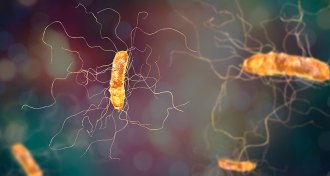 Life
LifeWhy some people may be more susceptible to deadly C. difficile infections
Proline, a type of amino acid, increases when gut microbe mixes are disturbed, giving this pathogen a ready food source.
-
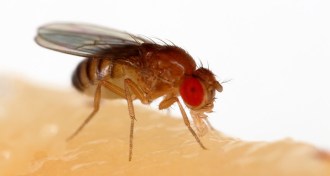 Neuroscience
NeuroscienceMessing with fruit flies’ gut bacteria turns them into speed walkers
Without the right gut microbes, fruit flies walk faster and take shorter rests, results that highlight a new connection between the gut and brain.
-
 Climate
ClimateHurricane Willa breaks an eastern and central Pacific storm season record
The combined might of eastern and central Pacific hurricanes produced a record-breaking year of storm energy.
-
 Planetary Science
Planetary ScienceSaturn’s moon Dione has stripes like no others in the solar system
Icy moon Dione has long, thin, bright lines at its equator that run surprisingly parallel to each other for tens to hundreds of kilometers.
-
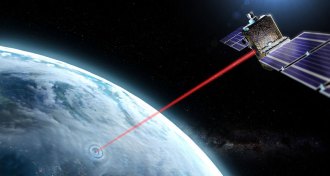 Physics
PhysicsThis cloud-zapping laser could help scientists create a quantum internet
A powerful fast-pulsing laser can bust through clouds to make quantum communication via satellite easier.
-
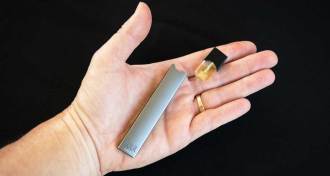 Health & Medicine
Health & MedicineTeens use Juul e-cigarettes much more often than other vaping products
Such devices are more popular among youth than other e-cigarettes or regular cigarettes, a study finds.
-
 Agriculture
AgriculturePlants engineered to always be on alert don’t grow well
Scientists bred a type of weed to lack proteins that help stem the production of bitter chemicals used to ward off insect attacks.
-
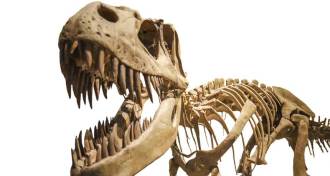 Paleontology
PaleontologyT. rex pulverized bones with an incredible amount of force
Tyrannosaurus rex’s powerful bite and remarkably strong teeth helped the dinosaur crush bones.
-
 Health & Medicine
Health & MedicineAn eye disorder may have given Leonardo da Vinci an artistic edge
An analysis of portraits believed to portray Leonardo da Vinci offers evidence that the artist had exotropia, in which one eye turns outward.
-
 Life
LifeHow to make organ transplants last
New strategies aim to help transplant recipients keep their organs healthy with fewer (or no) immune suppressing drugs.
-
 Genetics
GeneticsDNA differences are linked to having same-sex sexual partners
Genetic differences are associated with choosing same-sex partners in both men and women.